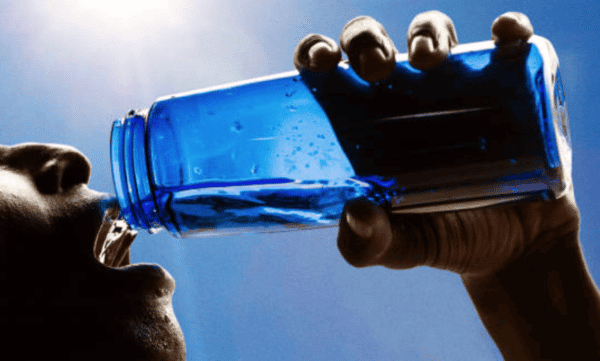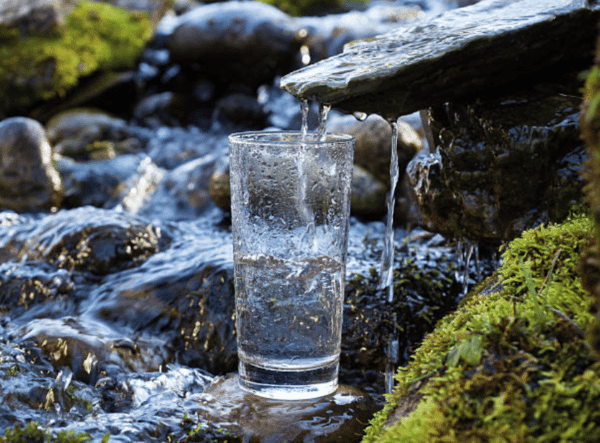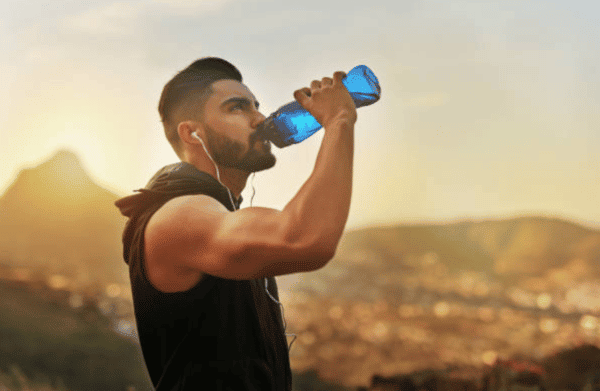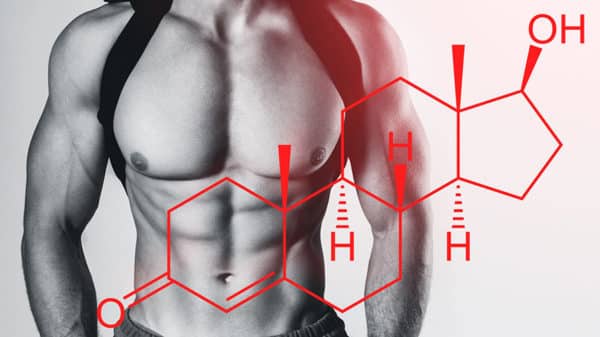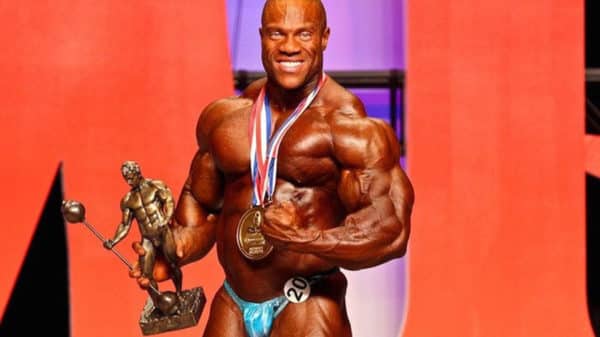Today in France, 75 % of individuals do not hydrate sufficiently during the day. Given the importance of water for the proper functioning of the human body, this figure is particularly alarming. Practicing a sport activity, whether it is weight training, fitness or running, requires hydrate well every day. But how do you get enough water?
Why should you hydrate when you exercise?
On average, the human body is composed of 65 % of water. Moisturize your body is therefore essential to ensure the proper functioning of the body.
The water that makes up our body is eliminated naturally during the day (urine, stools, sweat, etc.). Every day, we lose about 2 liters of water. This quantity can be higher depending on your diet, your physical efforts or the outside temperature. For example, when it is very hot, our body sweats to regulate its temperature and loses even more water. We must constantly rehydrate it according to our water needs, without waiting to be thirsty.
Drink enough will allow your body to eliminate toxins and other waste products. It will also help the intestine to perform its functions and, consequently, promote digestion and the feeling of satiety.
During a sport trainingThe body temperature increases. Just as when it is hot, the body will dissipate this heat during physical effort through sweat.
Water consumption during your sports session should not be taken lightly. Depending on the intensity and duration of your physical activity, water loss can be very significant. A lack of water will affect your athletic performance, which can drop by 25 %.
If you wish to slim downWater will also play an essential role. It participates in the drainage of the body and promotes the weight lossIt is a good idea to drink a large glass of water to reduce hunger and wait for the next meal. When you're on a dry spell, drinking a large glass of water is an excellent way to reduce hunger and wait for your next meal.
If you are looking to lose weight, find out 10 tips to never go hungry when you're on a diet.
In addition, water helps to hydrate your skin and renew your cells. Hydrating regularly to compensate for losses will help your muscles in the muscle recovery. This will reduce the pain and soreness caused by weight training.
How to stay well hydrated?
How much water should I drink each day?
To stay hydrated, the average person needs to drink between 1.5 and 2.5 liters of water per day. This quantity is directly related to the weight. You have to multiply your weight by 30 to get it. A person weighing 80 kilograms should drink about 2.4 liters of water per day.
If you engage in sports activities such as weight training or running, you will need to consume even more water to compensate for the losses.
On the other hand, drinking too much water is not good for your health. If you drink more than 5 liters of water daily, it can put too much strain on your kidneys and lead to health problems.
Can we replace water with another drink?
Many athletes prefer to take sports drinks rather than water. Water drinks generally taste better and provide more glucose and electrolytes. While these drinks are not a substitute for water, they can be of interest to individuals who are doing very intense sessions lasting several hours.
However, if you only train 2 or 3 times a week, these drinks are of no use to the body. You should therefore give preference to water.
To give your water a flavored taste, you can mix in food supplements as BCAAs. They contain amino acids that promote the recovery of bodybuilding practitioners.
Tea, coffee or energy drinks are diuretics, which means that they cause your body to eliminate more water. Therefore, they are not particularly useful for sports training.
The fruit juice and vegetables contain water. Consumed as part of a healthy diet, they can therefore contribute to thebody hydration. However, beware of the quality of these drinks. It is better to choose homemade fruit juices, because those sold in stores are often full of sugar and other additives.
Obviously, sugary drinks such as sodas should be avoided.
With regard to thebottled waterFor example, you can choose mineral or spring water, rich in magnesium, sodium, potassium and minerals. Carbonated water is an alternative to plain water, but it tends to bloat more. If you prefer tap water, you can invest in a carafe filter.
The consequences of poor hydration
The symptoms of dehydration
Physical activity is synonymous with sweating. A person who loses a lot of water and does not drink enough to compensate for this loss risks being dehydrated.
To avoid this, it is important to know how to recognize the first signs of dehydration. Being very thirsty is a symptom of dehydration. It is therefore important to force yourself to drink before you feel thirsty.
Similarly, the color of your urine gives valuable information about your hydration level. The darker it is, the more quickly you need to drink. Dry mouth, fatigue and dull skin are other early symptoms of dehydration.
In the case of more intense dehydration, the individual may experience digestive problems, diarrhea, nausea, vomiting or abdominal cramps. These are the signs of advanced dehydration that must be treated as soon as possible.
The presence of blood in the stool is the most alarming symptom. Such a case requires urgent medical attention.
Risks to the body
Not drinking regularly presents significant risks. During a training session, the lack of water can lead to a reaction of the body well known by the sportsmen: muscle cramp.
Also, if your body doesn't have enough water to regulate its temperature, it causes your heart to work harder, which increases your heart rate.
The lack of water also increases the risk of developing a urinary tract infection. In addition, it also promotes tendonitis and muscle catabolism.
Finally, in the event of poor hydration over the long term, the athlete may face serious kidney problems such as kidney failure or kidney stones.
Tips and tricks to stay hydrated all day
Unfortunately, it's common to forget to drink. But a few tips can help you stay hydrated throughout the day:
- Drink a large glass of water in the morning to rehydrate your body;
- Buy a large gourd in glass or stainless steel (rather than a plastic water bottle) that will accompany you all day long, at work or during your outings;
- Set a goal to finish your water bottle every day or half day (depending on its size);
- Add a little taste to your water by adding lemon juice, cucumber slices, frozen fruit (raspberries, strawberries, etc.) or even grated ginger (ideal for a little detox effect);
- If you have trouble drinking a lot of water, hydrate through food by eating water-rich foodsThese include fruits and vegetables (cucumber, melon, watermelon, tomato, zucchini, salad, peach, apple, pineapple, strawberry, etc.);
- During your training, be sure to sip it in small gulps to avoid the feeling of bloating.
It is better to use homemade lemon juice even if it means investing in a bottle with infuser fruit, because those sold in the shops are often full of sugar and other additives.
Conclusion
For athletes and non-athletes alike, water is essential to life. In the same way as a healthy and varied dietGood hydration has many benefits. Getting into the habit of drinking water throughout the day is the assurance of a healthy body. Athletes involved in strength training need to understand the importance of water, both during a session and on a daily basis.
Also read articles:
What is the importance of diet rebalancing for weight loss?


